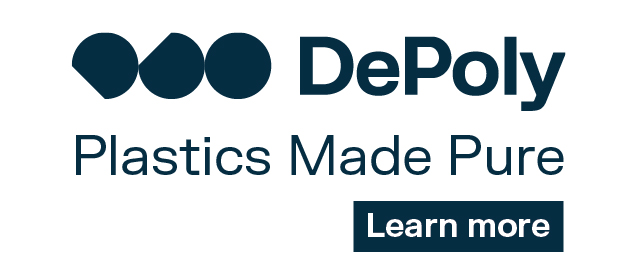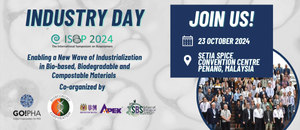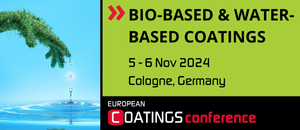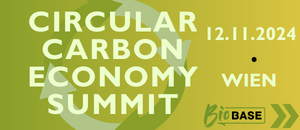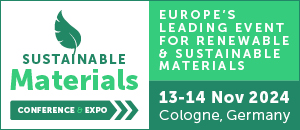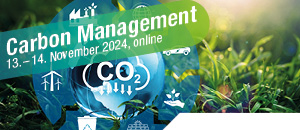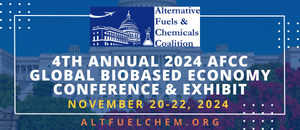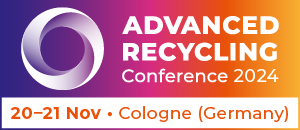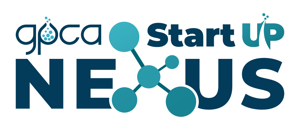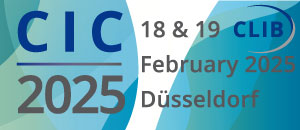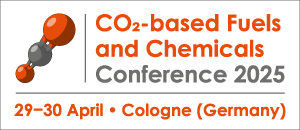1) Publication of the Carbon Flows Report on 17 March 2023: Compilation of supply and demand of fossil and renewable carbon on a global and European level
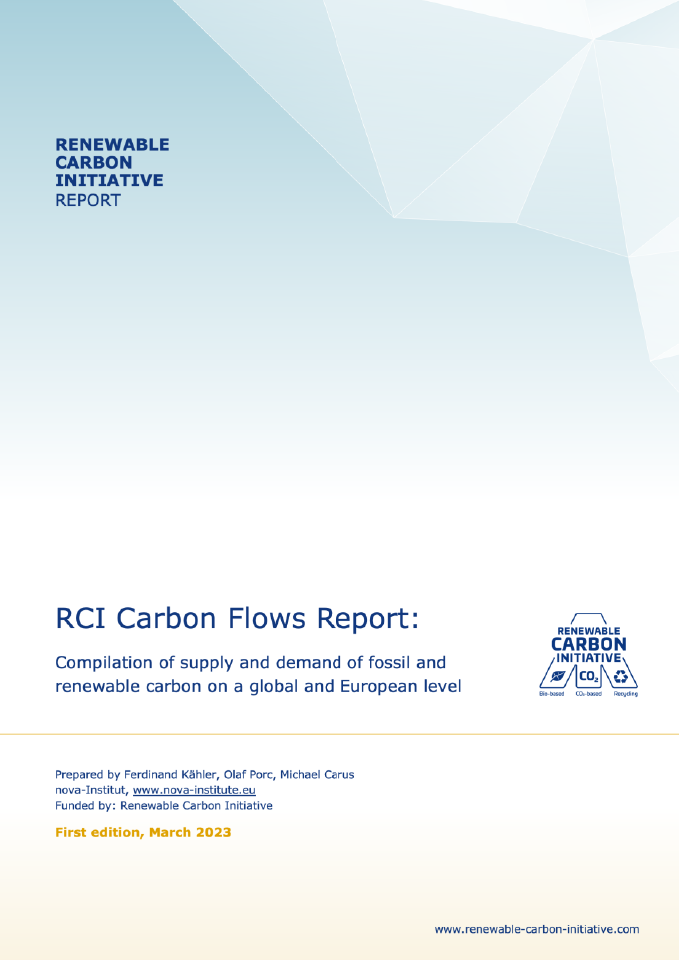
The report provides a comprehensive understanding of today’s carbon flows and what it means to replace fossil carbon with renewable carbon in the materials and chemicals sectors. It’s main intent is to provide a uniform and transparent data basis for a future carbon management that can be used and shared by industry, associations, policy-makers, science and alike.
In the last five years, the mindset around carbon has changed fundamentally. Of course, there is no way around the fact that the rising concentration of carbon dioxide in the atmosphere pose an existential threat to life on Earth. But at the same time, carbon is the main component of our food, the basis of all organic chemicals and plastics, and the backbone of life on Earth.
In the chemicals and plastics sectors in particular, almost 90% of the carbon used as feedstock is fossil carbon. This fossil carbon must be replaced by renewable carbon from recycling, biomass and CO2 by 2050 to avoid a further influx of fossil carbon into our technosphere and atmosphere.
This report provides a comprehensive, detailed and updated carbon flow data basis that significantly surpasses previous publications, containing more than 35 figures and tables with corresponding descriptions of methodology, source material and data. All data have been corroborated as best as currently possible by scientific publications, feedback from experts and additional research. Remaining gaps and differences are transparently depicted and explained as well as possible.
Find out more at: https://renewable-carbon.eu/publications/product/the-renewable-carbon-initiatives-carbon-flows-report-pdf/
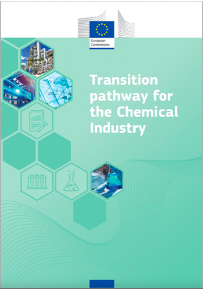
2) Transition Pathway for the Chemical Industry, first co-implementation meeting on 6th March in Brussels
In our continuous effort to shape and implement the Transition Pathway for the Chemical Industry, which was published in January 2023 and now moves into a joint co-implementation phase, RCI joined the Kick-Off Meeting of this Co-Implementation on 6th March in Brussels. The focus was put on bringing all stakeholders together, identifying the administrative and organisational structure for the co-implementation, and agreeing on some first focal topics to start the process with.
3) RCI–internal workshops with rheingold-institute on Consumer Psychology
Together with the rheingold Institute, who specialise on in-depth psychological insights, we have organised a workshop for our members to learn more about consumer psychology in relation to the chemical and derived material industries.
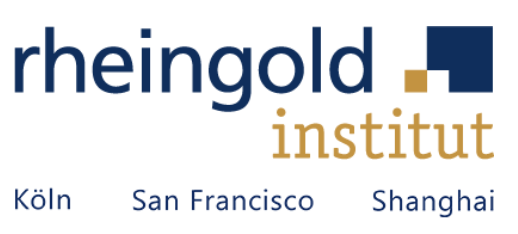
The workshop runs under the title: “Renewable Carbon meets Consumer Psychology: Discussion and Opening of new Perspectives“ and will take place on 27 March and31 March from 14:00 to 15:30 h CEST (offering the same workshop twice to make it more accessible). Each workshop is scheduled for 90 minutes with 10 minutes introduction (nova/RCI), 20 minutes initial presentation (rheingold) and 60 minutes Q&A as well as discussion.
In the main part, rheingold will e.g. talk about the dilemma of the chemical industry being both as „sinner“ (incomprehensible, doing „devils work“) and saviour (a solution industry and elementary necessity of life)“, the paradox of „the bigger and more relevant the chemical industry, the more consumers feel dependent and guilty“, outdoor industry and bio-based barriers and exploration of different mind-sets.

4) RCI Interview with member Leibniz-Institut für Verbundwerkstoffe GmbH (IVW): Dr. Barbara Güttler shares details on the immense potential of composite materials
We have launched a series of interviews with our RCI members, where you can learn more about the companies’ motivation, aspirations, and perspectives. Dr. Barbara Güttler (Manager Material Cycles) on behalf of IVW was our third interviewee and explained the research institute’s interest to lead the composite materials community, together with partners, towards holistic sustainable material cycles and #defossilisation.
IVW researches fundamentals for future applications of composite materials, which are of great importance for the mobility of the future, the fields of energy, climate and environment, production technology as well as for health care.
“The field of composite materials has an immense potential for lightweight applications especially in the mobility sector. This translates directly to reduced fuels consumption and unwanted emissions, which is most beneficial in the aviation sector.“
IVW researches fundamentals for future applications of composite materials, which are of great importance for the mobility of the future, the fields of energy, climate and environment, production technology as well as for health care.
5) Cellulose Fibres Conference (CFC) 2023 on 8-9 March 2023 in Cologne (Maternushaus) or online
RCI partnered up with the Cellulose Fibres Conference (CFC), which took place on 8-9 March in Cologne!
The presentations at the CFC introduced the latest development in the sustainable circular industry and provided valuable information on the wide range of applications for cellulosic fibres with alternative or improved feedstocks and technologies, closed loop and circular systems and their environmental impacts.
Find out more at: https://cellulose-fibres.eu
6) Welcoming our newest RCI members

Genomatica
Geno (CH) develops and scales sustainable materials from plant- or waste-based feedstocks instead of fossil fuels to help brands deliver on their climate goals and our planet’s needs. Geno’s technology, built over the last 20 years, now drives materials and ingredients in a variety of applications such as cosmetics, carpets, performance foods and beverages, home cleaners, apparel, and more. At Geno — the sustainable source™ — we believe that all products and the technologies that drive them should be responsibly sourced, traceable, and transparent.
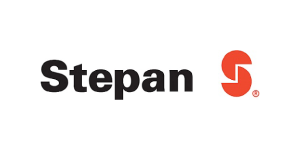
Stepan Company
Stepan Company (US) strives to provide innovative chemical solutions for a cleaner, healthier, and more energy efficient world and is highly committed to sustainability. Stepan Company serves a range of markets from consumer products such as laundry detergents, hard surface cleaners, disinfectants, shampoos and body wash; to customized solutions for the agricultural, oilfield and construction markets; polyurethane polyols used in the thermal insulation market; and high purity esters, fats and oils for the pharmaceutical, medical nutrition and dietary supplement industries.
Source
Renewable Carbon Initiative, press release, 2023-03-27.
Supplier
Geno (formerly Genomatica, Inc.)
Leibniz-Institut für Verbundwerkstoffe (IVW)
nova-Institut GmbH
Renewable Carbon Initiative (RCI)
rheingold Institute GmbH & Co. KG
Stepan Company
Share
Renewable Carbon News – Daily Newsletter
Subscribe to our daily email newsletter – the world's leading newsletter on renewable materials and chemicals





